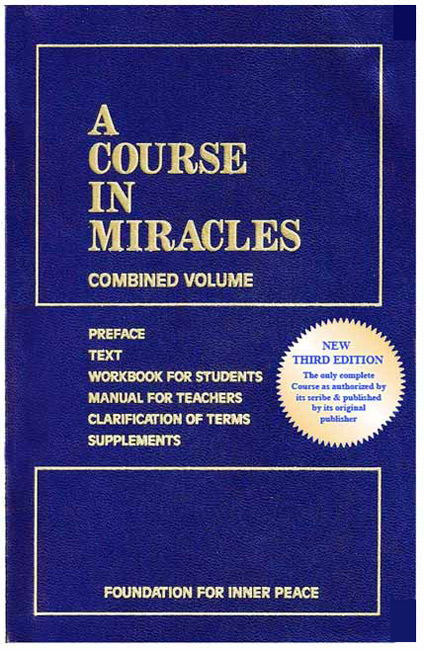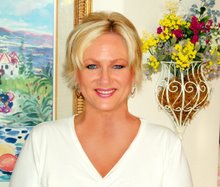
So many people think forgiveness is about condoning an act or behavior. It is not. To me, it’s about seeing a situation from another point of view. Not so much from a strategic viewpoint, but a compassionate one.
You see, for many years I have studied spiritual and religious texts and they all basically say the same thing—forgive. But what does that mean? That it was okay for John Edwards to have another baby with another woman, or to cheat on his wife? No. Not at all. Instead, I choose to see this in an entirely different light.
You see, for many years I have studied spiritual and religious texts and they all basically say the same thing—forgive. But what does that mean? That it was okay for John Edwards to have another baby with another woman, or to cheat on his wife? No. Not at all. Instead, I choose to see this in an entirely different light.

I cannot imagine the horror of burying my own child. No matter how many times I have done readings for people, including for parents who have lost their children, I, myself, cannot imagine the pain. I know there is eternal life. And the euphoric sense of pleasure it gives me to “tune” into someone who has passed is truly intoxicating in its purest form. This spiritual exhilaration is hard to describe. The energy is filled with so much happiness, glory, eternity and love. It’s absolutely precious and it’s something I’ve never taken for granted. But afterwards, as I sink back into my own reality, I reflect on what and who I’ve reached out to, knowing that these souls are not physically here for their parents to touch.
Crushing. Debilitating. Indescribable. Who could endure this? To try to put one foot in front of the other and take each day as it comes is more than challenging. How can someone get though this? Prayer? Divine guidance? It’s all available, but still, at the end of the day, their loved one is gone.
I’m not rationalizing John Edwards’s behavior, nor am I saying that it has to be justified. That’s not the point. However, if we can step back and look at the overall picture, we may be able to see a more understandable situation.
If one of the richest loves you can experience in this life is the love for
 your own child, then how can this be so permanently dismissed? Obviously both he and Elizabeth have held onto their faith and love for this child, and have taken huge strides in their life, even to the extent of having more children. And I’m sure they value and honor their deceased son, as well as love their children they have now. I’m sure they even loved each other once as husband and wife.
your own child, then how can this be so permanently dismissed? Obviously both he and Elizabeth have held onto their faith and love for this child, and have taken huge strides in their life, even to the extent of having more children. And I’m sure they value and honor their deceased son, as well as love their children they have now. I’m sure they even loved each other once as husband and wife. But somewhere along the line, the protective boundary came down, and an inexplicable pain permeated their souls. Like a terminal disease that progressed slowly over time, this anguish unfortunately manifested itself as a harmful, self-destructive behavior, a real time bomb waiting to explode.
You see, when we associate love with abandonment, we never really capture the logical meaning of this loss. Our psychic sense tells us that we are still close. That love never dies, and that our loved one is merely a breath away in another dimension-- softer, higher, right next to us. Yet our minds are incapable of comprehending this. Our senses are limited. It all seems so real in this reality.
And in this dimension, and only this dimension, our pain unfortunately survives and finds its way into our hearts. With every breath, we are constantly reminded how sad we are, and how angry we, and how we can’t connect with those we love. Yes we can adjust our fine tuning to fill the void with loving people, purposeful goals, and higher expectations, but the heart knows and recognizes the love that’s still real and the love that’s been lost at the same time.
So often I have done readings on people who have self sabotaged their great, loving relationships only to see that it’s because they have associated love with their fathers’ or mothers’ abandonment, usually through verbal or physical abuse. Instead of unconditional love, they associate a disassociation and lack of a healthy connection. Even sarcasm and conditional thought is a form of abandonment and denial of attention.
So the neglected child grows up into an adult and eventually sabotages healthy relationships. Why? Because somewhere deep in their subconscious memory they associate love with abandonment and therefore protect themselves from the pain, causing the loving relationship to end. I’ve seen it countless times, or should I say, I’ve been shown this countless times in my clients’ sessions.
I’m sorry, John, that you lost your son. I know words can never comfort the heartache you must feel. You loved mightily, fully, and richly, and God gave you a miracle to adore. Then it was lost, with no explanation or forewarning. I’m sorry. I am truly sorry.
You see, when we associate love with abandonment, we never really capture the logical meaning of this loss. Our psychic sense tells us that we are still close. That love never dies, and that our loved one is merely a breath away in another dimension-- softer, higher, right next to us. Yet our minds are incapable of comprehending this. Our senses are limited. It all seems so real in this reality.
And in this dimension, and only this dimension, our pain unfortunately survives and finds its way into our hearts. With every breath, we are constantly reminded how sad we are, and how angry we, and how we can’t connect with those we love. Yes we can adjust our fine tuning to fill the void with loving people, purposeful goals, and higher expectations, but the heart knows and recognizes the love that’s still real and the love that’s been lost at the same time.
So often I have done readings on people who have self sabotaged their great, loving relationships only to see that it’s because they have associated love with their fathers’ or mothers’ abandonment, usually through verbal or physical abuse. Instead of unconditional love, they associate a disassociation and lack of a healthy connection. Even sarcasm and conditional thought is a form of abandonment and denial of attention.
So the neglected child grows up into an adult and eventually sabotages healthy relationships. Why? Because somewhere deep in their subconscious memory they associate love with abandonment and therefore protect themselves from the pain, causing the loving relationship to end. I’ve seen it countless times, or should I say, I’ve been shown this countless times in my clients’ sessions.
I’m sorry, John, that you lost your son. I know words can never comfort the heartache you must feel. You loved mightily, fully, and richly, and God gave you a miracle to adore. Then it was lost, with no explanation or forewarning. I’m sorry. I am truly sorry.
 So it is this man, the crippled father, who cries in the night over the loss of his precious son that I target in my mind. This man, I love and forgive. This man, I send angels, light, and God’s touch knowing that somehow your pain will be healed. The rest I let go.
So it is this man, the crippled father, who cries in the night over the loss of his precious son that I target in my mind. This man, I love and forgive. This man, I send angels, light, and God’s touch knowing that somehow your pain will be healed. The rest I let go.How does this play out in the present moment? I don’t know. I choose not to partake in judgment. For me it’s just an ineffective, limiting mindset. The energy it creates is lifeless, dull, and stagnant. Besides, who am I to be righteous?
We have all made mistakes—all of us. And it is only us; in our human irrationality and pious thinking that categorizes degrees of mistakes as “good,” “bad,” or “better.” As I see it, they’re all in the same category: judgment constricts and blocks, forgiveness and surrender frees—all of us—not just the one we aim at.
A Course in Miracles says:
“Forgiveness is unknown in Heaven, where the need for it would be inconceivable. However in this world, forgiveness is necessary for all the mistakes we have made. To offer forgiveness is the only way for us to have it, for it reflects the law of Heaven that giving and receiving are the same.
 When a brother acts insanely, he is offering you an opportunity to bless him. His need is yours. You need the blessing you can offer him. [And] there is no way for you to have it except by giving it.
When a brother acts insanely, he is offering you an opportunity to bless him. His need is yours. You need the blessing you can offer him. [And] there is no way for you to have it except by giving it.
You do not need God’s blessing because that you have forever, but you do need yours.
Forgiveness is the means by which we will remember. Through forgiveness the thinking of the world is reversed.”
And so I say, I forgive you John Edwards.
 When a brother acts insanely, he is offering you an opportunity to bless him. His need is yours. You need the blessing you can offer him. [And] there is no way for you to have it except by giving it.
When a brother acts insanely, he is offering you an opportunity to bless him. His need is yours. You need the blessing you can offer him. [And] there is no way for you to have it except by giving it.You do not need God’s blessing because that you have forever, but you do need yours.
Forgiveness is the means by which we will remember. Through forgiveness the thinking of the world is reversed.”
And so I say, I forgive you John Edwards.







